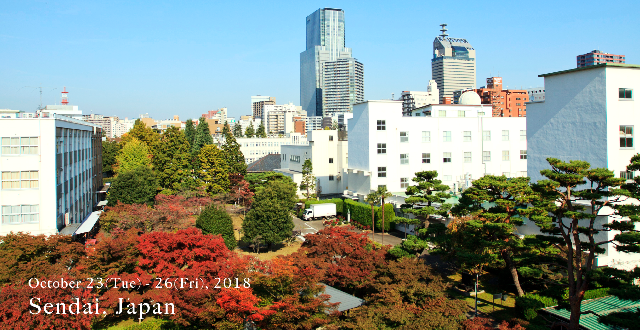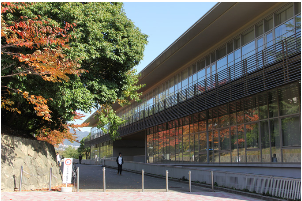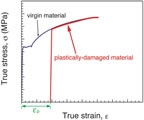1. Introduction
The Japan Society of Maintenology (JSM), which has been conducting investigations and researches on maintenance activities in the nuclear industry, deeply regrets the serious disaster of Fukushima Daiichi Nuclear Power Plant caused by earthquake and tsunami. We do hope that preventive measures not to repeat such a tragedy should be planned. We trust that it is one of our important agendas to offer proposals to prevent such a disaster. In this regard, this paper carries out analysis of the root of causes by having an insight into perception that nature of an organizational behavior in Japan may have had a harmful effect on the incident.2. Road from Dream to Despair, and finally to Success
Fifty-five years have passed since the Atomic Energy Basic Act was enacted. At that time, many people in Japan expected much from the nuclear power as future for Japan. The fast breeder reactor was counted on for the future as magic wand, which could change Japan from “lack of resources” to “full of resources”.For a big project, it is normally a custom to follow the path starting at a full of hopes, then experiencing despair, and finally arriving at the point where it lead to the success by making desperate efforts at the time the project is found to be really feasible. The fast breeder reactor “Monju” seems to follow the same path. The engineers involved in the “Monju” have overcome difficulties by solving the many accidents and troubles. Now they are making a step toward the “commercial use” of the fast breeder reactor by using “Monju” as experimental reactor, which used to be shut down but it is now nearly close to restart.
It is conceivable that the natural energy also goes through the same progress as already mentioned. Natural energy tends to be emphasized only their dreamy aspects. As a result, we now see too much expectation to natural energy, but they need to realize that many technical difficulties still lie in our path to use the energy. It requires a vast amount of budget, developing efforts and time to overcome. As natural energy is domestically available, it is also my desire that the natural energy will account for a certain amount of electric power use as the technical development progresses, even though it will not be in main fraction of the use. At the same time, I am afraid of the future that is not so bright as advertised.
After the Fukushima disaster, the Japanese energy policy is often debated in confrontation between nuclear energy and natural energy. Rather, it is more important to discuss the policy primarily from the viewpoint of improvement of self-sustenance in energy for Japan, that is that the option of “the best-mix of domestic energies available” should not be ignored.
In the midst of the prevailing situation that the dream of peaceful use of the nuclear power has come through, and the public accepted nuclear power, the Fukushima disaster unfortunately brought nightmarish desperation to the Japanese.
Looking through the fact that it has been only forty years since the nuclear power electric supply started, we should view this disaster as historical trial for the acceptance of nuclear power. we also should plan to develop an advanced and much safer nuclear reactor that will endure a such serious disaster through finding out the real causes.
3. Toward “to do” from “to be” Attitude
Why are we suffering from this unprecedented nightmare. It is obvious that we could not handle the situation because of the tsunami whose scale was far beyond our prediction, so that it was beyond their control. We know that U.S. and E.U. have taken severely in crisis management, but we are not sure if Japan had the similar measurement as they have, yet even not sure if crisis drills were carried out. If crisis management was seriously taken at Fukushima Daiichi Nuclear Power Plant, such severe disaster could have been avoided.We need to examine the reason why such countermeasures did not exist in Japan. Having known what technical problems were in the incident, we do not discuss it here. Rather we discuss aspects of an organizational problem by which the disaster might have worsen.
It’s easy to condemn Tokyo Electric Power Co. or regulatory bodies such as Nuclear and Industry Safety Agency and Nuclear Safety Commission of Japan, and also to accept the media report telling that “the way of administration’s handling might have caused the disaster to worsen”. Yet we would need to pay more attention to latent reasons. To get that point, we must understand how Japanese traditional moral (organizational values or custom) have influenced the nuclear administration and the operations that involves the nuclear industry and nuclear regulatory organizations over the past forty years .
To tell the conclusion first, it is derived from the non-modern traditional moral (“to be” in the moral culture), by which their behavior have been dominated in the regulatory organizations, and yet they have not overcome the moral. To understand the “to be” moral, you need to go back to the Edo era when their social status was decided by your family’s class in the society and your family lineage. Since the Edo society had clearly a class system discriminated by four classes of samurai, farmer, artisan, and merchant, it was really impossible to change your class no matter how hard you worked. In such a society, people are discriminated in such a manner that your class is considered to be high simply because you were born “to be” a samurai, or, yours is considered to be low only because you were born “to be” a farmer.
The Japanese government in the Meiji after the Edo era urged the swift modernization. The eras of Meiji, Taisho, and Showa including WWII were the period of the dramatic transformation from a “to be” society into a “to do” society in various fields. Unfortunately the transformation was not taken in the Japanese nuclear regulatory organizations of the government. That is the problem. We do hope that people in Japan should share the answer to solutions of the problem.
4. “To do” Principle in the Constitution and the Regulation
The Article 12 of the Constitution of Japan says: the freedoms and rights guaranteed to the people by this Constitution shall be maintained by the constant endeavor of the people, who shall refrain from any abuse of these freedoms and rights and shall always be responsible for utilizing them for the public welfare. Its spirit tells that to sustain something like the intangible citizen’s right, we need to constantly maintain “to do” attitude as often seen in media criticism to the authority.Suppose that you substitute words in the Article 12, “Constitution” and “freedoms and right” for “regulatory” and “nuclear safety” respectively, that is altered to “The nuclear safety guaranteed to the people by the regulatory shall be maintained by the constant endeavor of the regulators and the operators, who shall refrain from any abuse of the nuclear safety and shall always be responsible for utilizing them for the public welfare.” I trust that the very essence of idea of the “to do” attitude for the nuclear regulation is on their constant endeavor toward improvement of safety.
This principle has a lot in common with idea of the US regulatory, “we trust but verify”. Actions to balance all of three, regulation, safety, and benefits, in which one aspect may conflict with other, is exactly that of the regulation based on the “to do” attitude.
The Japanese regulation pays too much attention to side issues, whereas the one in U.S. and E.U are not. The Japanese regulation is obviously based on the concept that is “to be” regulation following precedents, but the “to do” regulation, which pursues nuclear safety dynamically and is more important.
5. The Consequences Brought by the “to be” Regulation
What if the “to be” principle remains in the nuclear regulation without any reformation. The Japan today would have been in the similar mental structure as samurais had in the Edo era. For instance, the samurais served only their lords but the other citizens.The regulatory bodies work hard for their own benefits, not for the citizens to whom they have to give a guarantee for the nuclear safety. Even though they always say “safety first for the people”, it has become its own purpose. They are simply trapped in “the regulation for the regulation”. It wouldn’t be too much to say that the regulators, who are greatly influenced by the “to be” principle, put a greater emphasis on whether the operators’ actions on safety maintenance are consistent with the codes and the standards, and also we never saw their serious posture seeking to find the root of safety.
That is also a weak point as compared with the Nuclear Regulatory Commission (NRC) in the US. The Japanese regulatory bodies seem to show no enthusiasm for the dynamic safety enhancement. The ideas of the “to do” regulation implies the verification to see whether the standards are useful for the nuclear facility safety enhancement as always watching the results of the operation , and the regulation demands the endless review of the codes and the standards one after another. The current status of the “to” do” regulation is far away from what is meant to be, which is exactly the roots of organizational defects. The guide 27 in the Review Guide for Safety Design, one of the causes of this accident, tells that a long-term power outage needs not to be taken into account. The guidance has not been reviewed for a long time because the “to do” mind is not fixed yet in regulators across the organizations. For instance, under such a circumstance, the operators are reluctant to voluntarily prepare a standby power, because the application for a change to construction permits is much more strict and cumbersome to process than those of the US and EU, in which realities eventually make one of elements to build up their hesitation, that is not to act on the “to be” regulation.
That is another example of abnormalities lied behind Fukushima’s incident. Aacademic experts have pointed out a lack of the “to do” principle in them improving week points. Nevertherless the regulators did not take in the “to do“ principle until criticized by media at the time when a big accident occurred, just like a case of the traffic signal that will not be installed unless an accident occurs.
We can also see a good example of the similar case in Maintenance Code of the Japan Society of Mechanical Engineers (JSME). “Technical standards” ministerial ordinance used to require, regardless of the cost, repairs of shroud damage which has nothing to do with safety. Compared with other industries, there are surprisingly many wasteful repairs performed only because “it’s nuclear”. It took a long time to get the technical standards revised and was done at the time when by the Maintenance Code was established by the JSME with the agreement of the Japanese regulatory bodies. It was twenty years behind the US technical standards. It is surprising to have taken nearly twenty years to draw up such an ordinary code. At that time, I was really disappointed with stupidity attributed to inability of the regulation authorities and failure of the media to spot its ridiculousness .
We would not have experienced such a stupidity if the “to do” principle had taken root in our society or in the regulation authorities. I’m afraid such unreasonable situation that has not changed and the problem that still remains in the society.
6. The “to be” Relationship between the Regulators and the Operators
The relationship between the regulators and the operators in Japan is similar to that of the samurais and the merchants in the Edo era. It would be very difficult to control the enormous amount of nuclear power and to secure safety unless the “to be” relationship is transformed into the “to do” relationship.For instance, the regular inspection methods have remained unchanged for a long time and we do not see any improvement for the methods, in which we see only the fact that they make it to waste time and money on the operators. The realities lack the sincere attitude to get to the bottom of the safety assurance. Because the “to be” principle which acts on precedent still dominates, nothing motivates people for the improvement. In addition, the Nuclear and Industry Safety Agency clung to the introduction of the “Quality Management System (QMS)” for the nuclear power safety. That drew the abnormality that they stick too much to non-conformity measures which has nothing to do with the nuclear safety directly like an incipient fire. Although QMS ended up in keeping the engineers away from the sites, they believed nevertheless that the safety still improve. It makes me very frustrated when I imagine that if a part of many works on QMS was assigned to the work related to the severe accident measures, the accident would not have happened.
Japan has had no mechanism to check inconsistency in the regulation settled on under the odd relationship between the authority and its subordinate as mentioned earlier, that has distorted the way a nuclear power should be.
Essentially, influential groups like the media should play such a check-up role. However, they are concerned about only events of incidents or accidents because they are not familiar with the nuclear technology. They play up many reports on a cover-up and a falsification and the like, nevertheless they do not have enough scope to explore the reformation related to the regulatory climate. They simply believed “the severer the regulation, the securer the safety”. Why they couldn’t realize that the paradox of “tightening regulations or improper regulations worsens the safety” and of “an excessive overhaul for the check-up has created another maintenance anew”. Consequently all of that brought the “Galapagos Syndrome of the nuclear power” in Japan that is hurting our interests. In order to solve these problems, it is essential to set up a third-party organization for the forthcoming reform that evaluates what the regulation should be, (from “to be” to “to do” regulation). Under the “to be” mentality lies overwhelmingly behind the organization over forty years, it was natural to draw a loophole in the safety countermeasure. The unprecedented nuclear disaster occurred as it caught a momentary chance when the alert for the nuclear disaster slacked off while violence of nature attached. It would be nothing but “the tragedy of the “to be” system”.
7. Conclusion
We should not forget the truth that nuclear power is fundamental energy in the universe. If we can manage this energy to use peacefully and yet safely, the benefits are so immense. As in a saying, “every good thing has something bad with it”, peaceful use of nuclear power also goes with the danger of radiation that lies behind it. There are the most important and challengeable issues to overcome the hazard by radiation.
The “to be” regulation is unable to deal with such a severe accident properly. The “to do” principle and the “to do” value are hard to penetrated in regulatory bodies though, they still need to fully reconsider what “to be” regulation should be and then must transform the organization to the “to do” organization that is supposed to be commended. I would imagine that it is really difficult to pursue the reform under the circumstance where the bureaucracy is fully organized based on the “to be” principle. Despite of these difficulties, the “to do” organization must be realized to compensate for the Fukushima accident.
The Fukushima accident has not been under control. Yet I really hope that the situation of the nuclear disaster will be resolved and return to normal as soon as possible, and then whole pictures of what happened in the disaster will be made clear, and also that the results will be reflected to the nuclear power stations including ones in planning , in operation, and under the construction. It will make these nuclear power stations revived with the highest safe level in the world and be as the technology that takes on Japan energy security. Most importantly I want the last two points to be achieved successfully.
Finally, the JSM sincerely hopes that we should be able to share the goal to use nuclear power for the future of Japan, which involves all that is relevant to securing the nuclear power safety so as to meet expectations from the people in communities near the nuclear plant who understands presence of nuclear power.





